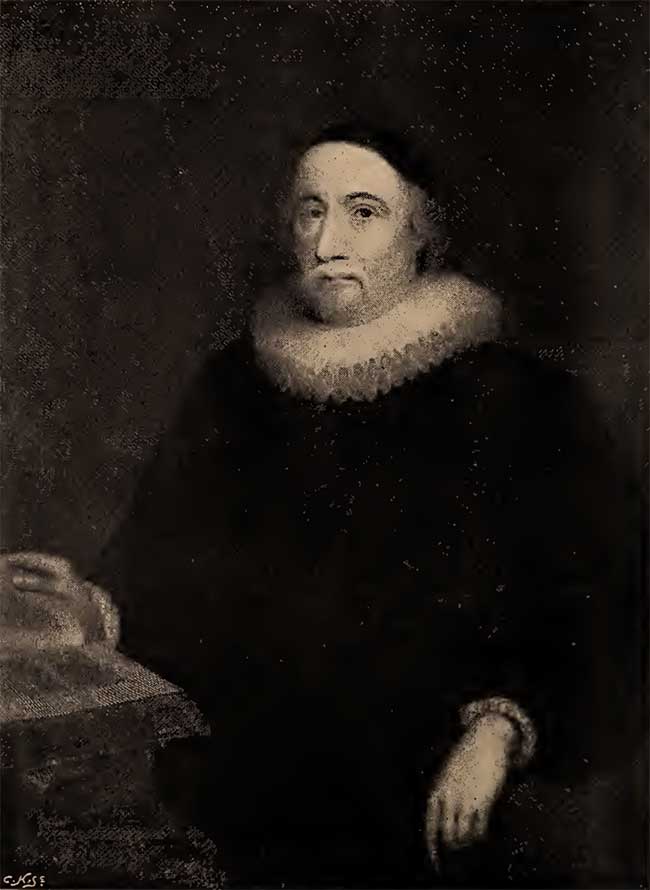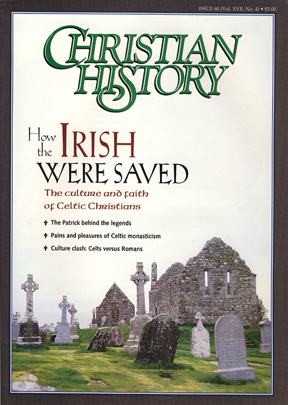USSHER SYNTHESIZED ANCIENT HISTORY BUT IS MOCKED FOR ONE DUBIOUS DATE

[Above: James Ussher, frontpiece from J. A. Carr’s The Life and Times of James Ussher, Archbishop of Armagh. London: Wells Gardner, Darton and Co., 1895. public domain]
THE IRONIES AND PARADOXES of James Ussher’s life were many. One of the most insightful scholars of his age, his earliest teachers were blind. In an age of early deaths, he lived into his seventies. He became the highest-ranking Protestant in a nation overwhelmingly Catholic. Despite his love for his homeland and his insistence on the independence of its Church, he spent his last twenty years in exile. A royalist, he won the deep respect of a regicide. A book lover, he was stripped of his library. A brilliant synthesizer of the multiple threads of world history, his historical work would be remembered largely for a single dubious date.
James Ussher was born in Dublin, Ireland, 4 January 1581. Although his family was Protestant, its roots extended centuries-deep in the largely Roman Catholic country. Two Scripture-loving aunts, blind since childhood, taught him to read. Ussher became a lover of books and a godly youth, although he later accused himself of spending too much time on poetry and card playing.
His father wanted him to be a lawyer. Ussher, however, chose the church. In 1598, he was the second student enrolled in Trinity College, Dublin. A debate with a Jesuit, who argued the authority of Roman Catholicism because of its antiquity, prompted Ussher to spend the next eighteen years reading all of the Greek and Latin church fathers so he could trace the course of Christianity and its changes. In 1603, Trinity College sent him to England to purchase books for its library. He would return on similar expeditions in 1606, 1609, and 1612, haunting libraries and buying books for himself. Eventually he accumulated a personal library of over 10,000 volumes. His researches were preparing him to become one of the greatest scholars of his age.
After Ussher became a priest he headed a commission to prepare articles for the (Protestant) Church of Ireland. The resulting 105 articles were strongly Calvinist. In 1621, King James appointed him Bishop of Meath. He was not one of those slothful clergymen who grasp their pay but shirk their duties. He preached wherever he could find an audience, “at home, in church, school-house, session court.” His episcopal seal had the motto “Woe is me if I preach not the Gospel.” Ussher strove for reformation in the established churches of Ireland and England. In 1624, he was consecrated Archbishop of Armagh—the primate of Ireland. He argued for the independence of the Irish Church from the English, but Lord Stafford and Archbishop Laud insisted it adopt the Church of England’s Thirty-Nine Articles.
In 1640, Ussher made one of his many visits to England. He never returned home because a Catholic uprising and massacre made the position of Protestants precarious. Rebels sacked Ussher’s residence in Drogheda, but spared his library. However, when Ussher later sided with the king against Parliament, the House of Commons confiscated his books. Eventually they were given to Trinity College. By then, irreplaceable papers had disappeared from the collection. In 1645, Ussher also lost research notes for a history of the Waldenses when Welsh bandits robbed him of all his possessions and scattered his papers to the wind.
From 1613 until the end of his life, Ussher authored one book after another, mostly in Latin. Many of these were on the history of the church and its teachings. A short English-language book argued that Patrick and the early Irish church were not Roman Catholic. His last major work, the Annales, sought to harmonize biblical chronology with those of the Romans, Persians, and other ancients. It was an achievement of masterful scholarship and brought him international respect. The University of Leyden offered him an honorary professorship.
Because of his high position, Ussher could not escape politics. He sided with Charles I in the dispute between king and parliament and kept the anniversary of Charles’s beheading as a private fast. On one occasion he rebuked Oliver Cromwell, comparing the root of evil in Cromwell’s heart to the core of a boil.
In January 1656, Archbishop Ussher wrote in his Almanac: “Now aged seventy-five years. My years are full.” On 20 March, he gave spiritual consolation to a lady who was dying in the house where he stayed. That evening he complained of pains in his side. Pleurisy set in. The physicians could do little for him. Preparing for death, he thanked his hostess for her kindness and said farewell, commending her to the grace of God. Left alone, he was heard to pray, “O Lord, forgive me, especially my sins of omission.” At one in the afternoon on this day, 21 March, 1656, he died. He was survived by his daughter, Elizabeth.
Cromwell held Ussher in such respect that he ordered a public funeral and allowed the otherwise banned prayer book to be used.
Some editions of the Bible included Ussher’s dates as if they were on a par with the inspired word. This has led to mockery because he set a specific date and hour for creation in October 4004 BC.
—Dan Graves
----- ----- -----
Ussher grew up in the complex tradition of Irish Christianity. For more, see Christian History #60 How the Irish Were Saved






